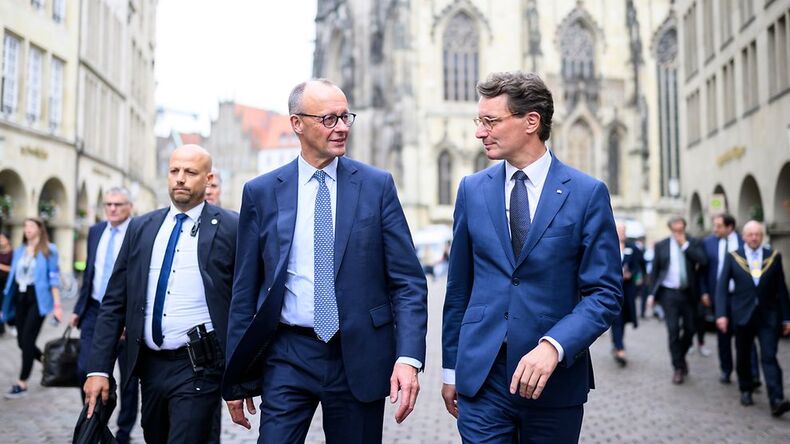Merz emphasizes North Rhine-Westphalia’s role in transformation
by David Fleschen

During his inaugural visit to North Rhine-Westphalia, German Chancellor Friedrich Merz emphasized the region’s key role in driving industrial transformation and shaping the country’s future energy and technology policy.
“North Rhine-Westphalia is not only an industrial hub, but has also been an energy center for centuries,” Merz said following a joint cabinet meeting with state premier Hendrik Wüst. Both leaders confirmed their commitment to modernizing Germany’s energy infrastructure. Merz stated that “a rapid expansion of power plants and grid and storage capacities” is a top priority. He also pointed to the reduction in electricity grid charges and the planned abolition of the gas storage levy as first relief measures for industry.
The talks covered the structural transition in the Rhineland lignite region, support for the defense industry, and high-tech research funding. Merz visited the Fraunhofer battery cell production research center in Münster, which he described as a model for bridging the gap between basic research and industrial-scale application. “We are strong in research,” he said, “but we are often not good at transferring it into industrial implementation.”
Both the federal and state governments emphasized their joint “high-tech agendas” focused on technologies such as AI, energy systems, and advanced manufacturing. Wüst noted that the state is moving “from coal to AI” and is prepared to make “robust industrial and innovation policy contributions.”
Although no direct reference was made to the steel sector, the visit underlined that energy-intensive industries in North Rhine-Westphalia are considered central to Germany’s industrial transformation strategy. More specific implications for the steel sector are expected in the federal government’s upcoming steel strategy.
Source and Photo: Bundesregierung

